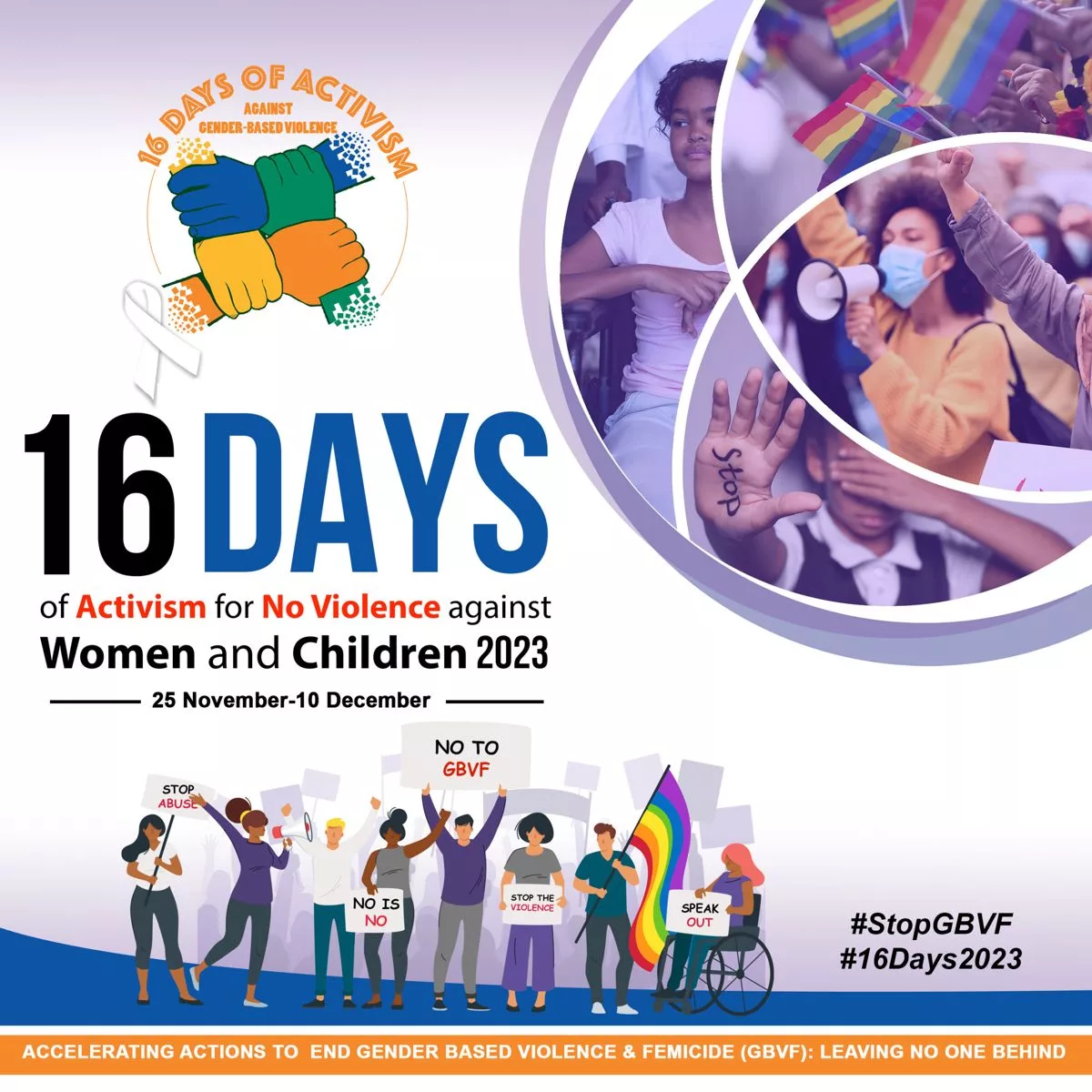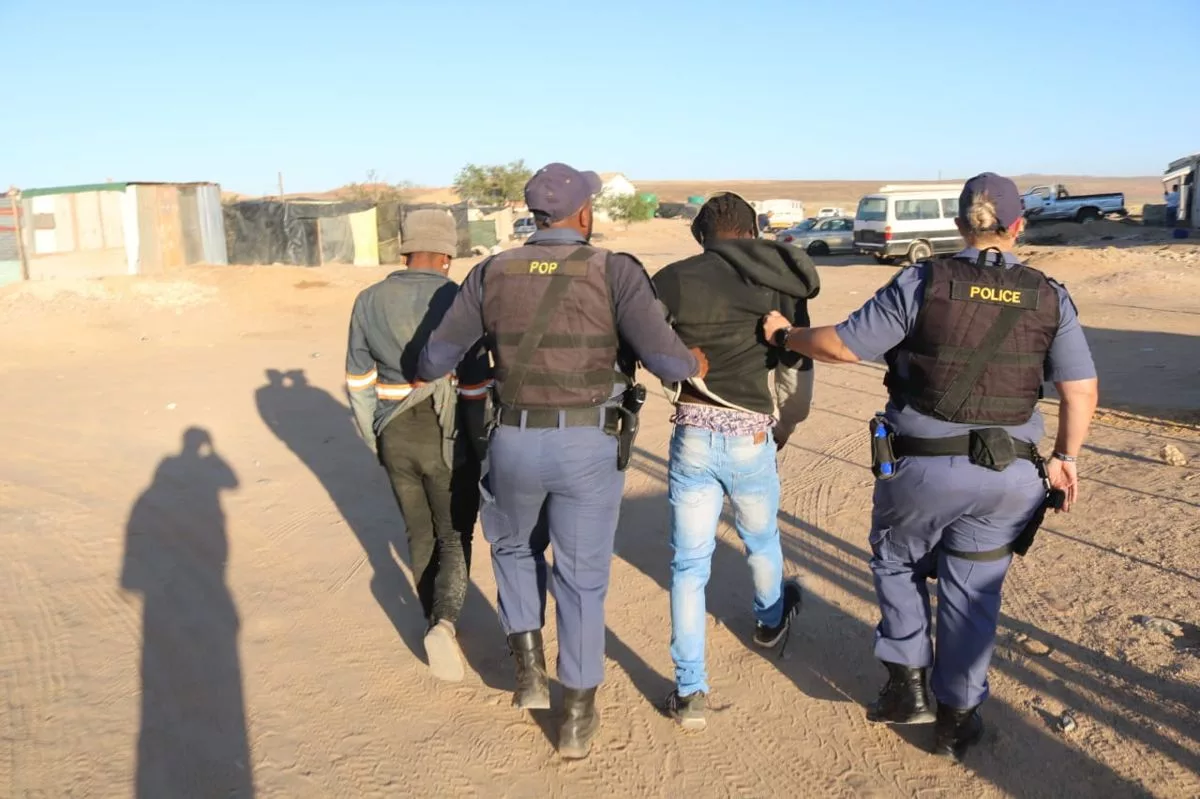Captain Khomotso Maluleke, a Forensic Social Worker of the South African Police Service, has gone beyond her official duties by learning sign language to communicate effectively with deaf victims and survivors of Gender-Based Violence and Femicide. She has played a pivotal role in obtaining justice for victims of GBVF and successfully ensuring at least 13 offenders are imprisoned in Mpumalanga. Captain Maluleke embodies extraordinary resilience and dedication, paving the way for a new era of social responsibility within the SAPS.
How does Captain Khomotso Maluleke change the face of law enforcement in South Africa?
Captain Khomotso Maluleke, a Forensic Social Worker of the South African Police Service (SAPS), goes beyond her official duties by learning sign language to communicate effectively with deaf victims and survivors of Gender-Based Violence and Femicide (GBVF). As a result, she has played a pivotal role in obtaining justice for victims of GBVF and successfully ensuring at least 13 offenders are imprisoned in Mpumalanga. Captain Maluleke embodies extraordinary resilience and dedication, paving the way for a new era of social responsibility within the SAPS.
South Africa is a bustling, always-moving society that is home to many unsung heroes. These individuals selflessly devote their lives to securing the safety and well-being of others. They consistently go the extra mile, often venturing outside their comfort zones to support those who are marginalized and vulnerable. A shining example of such dedication is Captain Khomotso Maluleke, a Forensic Social Worker who works at the Family Violence, Child Protection, and Sexual Investigations (FCS) unit of the South African Police Service (SAPS).
Changing the Face of Law Enforcement
The SAPS is a fundamental part of the South African law enforcement system, recognized for its incessant battle against criminal activities. However, the scope of its dedicated officers, such as Captain Maluleke, extends beyond what is traditionally perceived as the duties of a police officer. Captain Maluleke, driven by a desire to adopt a more inclusive approach to law enforcement, has embarked on a venture that few professionals are willing to undertake. She has taken it upon herself to learn sign language to communicate effectively with deaf victims and survivors of Gender-Based Violence and Femicide (GBVF).
This determination was born from a deeply touching experience, during which she was unable to assist a deaf victim at the police station due to a language barrier. Despite her best efforts, she was unable to help the victim report a case of house burglary and assault. This incident ignited a spark in Captain Maluleke, making her realize the urgent need to learn sign language to provide comprehensive services to the deaf community.
Beyond the Call of Duty
Captain Maluleke’s journey extends far beyond just learning a new language. She has played a pivotal role in obtaining justice for victims of GBVF, successfully ensuring at least 13 offenders are imprisoned in Mpumalanga. Her role has seen her handle a range of crimes from rape to child neglect and assault GBH, leading to sentences that range from eight years to life imprisonment.
Captain Maluleke’s dedication transcends her official duties. She looks beyond the victim’s case, focusing on the individual who needs care, assistance, and understanding. One striking example is her aid to a 13-year-old girl who was raped and impregnated by her uncle. Captain Maluleke went the extra mile to find proper shelter for the girl and ensured her return to school.
Advocacy and Empowerment
As Captain Maluleke navigates her final year of sign language studies at Wits University, her drive to instigate change remains strong. Her vision encompasses empowering communities to resist GBVF. She underlines the importance of reporting abuse, even if the perpetrators are the sole providers, encouraging communities to become activists against GBVF in their homes, workplaces, and neighborhoods.
Captain Maluleke embodies extraordinary resilience and dedication. Her journey merges community service with the pursuit of a more inclusive approach to law enforcement, paving the way for a new era of social responsibility within the SAPS. She encourages us to view the police not merely as enforcers of law and order, but also as social workers, educators, activists, and advocates for change.
By choosing to learn sign language, Captain Maluleke has broadened her abilities and paved the way for the deaf community to access justice. Her story serves as a reminder that each of us can make a difference if we are willing to step outside our comfort zones and make an effort to understand and accommodate the needs of those around us.
What does Captain Khomotso Maluleke do beyond her official duties?
Captain Khomotso Maluleke, a Forensic Social Worker of the South African Police Service (SAPS), goes beyond her official duties by learning sign language to communicate effectively with deaf victims and survivors of Gender-Based Violence and Femicide (GBVF). As a result, she has played a pivotal role in obtaining justice for victims of GBVF and successfully ensuring at least 13 offenders are imprisoned in Mpumalanga.
What motivated Captain Khomotso Maluleke to learn sign language?
Captain Khomotso Maluleke’s motivation to learn sign language stemmed from a deeply touching experience, during which she was unable to assist a deaf victim at the police station due to a language barrier. Despite her best efforts, she was unable to help the victim report a case of house burglary and assault. This incident ignited a spark in Captain Maluleke, making her realize the urgent need to learn sign language to provide comprehensive services to the deaf community.
How has Captain Khomotso Maluleke played a pivotal role in obtaining justice for victims of GBVF?
Captain Khomotso Maluleke’s role has seen her handle a range of crimes from rape to child neglect and assault GBH, leading to sentences that range from eight years to life imprisonment. She has successfully ensured at least 13 offenders are imprisoned in Mpumalanga. Her dedication transcends her official duties and focuses on the individual who needs care, assistance, and understanding.
How does Captain Khomotso Maluleke empower communities to resist GBVF?
As Captain Maluleke navigates her final year of sign language studies at Wits University, her drive to instigate change remains strong. Her vision encompasses empowering communities to resist GBVF. She underlines the importance of reporting abuse, even if the perpetrators are the sole providers, encouraging communities to become activists against GBVF in their homes, workplaces, and neighborhoods.
How does Captain Khomotso Maluleke change the face of law enforcement in South Africa?
Captain Maluleke embodies extraordinary resilience and dedication, paving the way for a new era of social responsibility within the SAPS. She encourages us to view the police not merely as enforcers of law and order, but also as social workers, educators, activists, and advocates for change. By choosing to learn sign language, Captain Maluleke has broadened her abilities and paved the way for the deaf community to access justice.
What can we learn from Captain Khomotso Maluleke’s story?
Captain Khomotso Maluleke’s story serves as a reminder that each of us can make a difference if we are willing to step outside our comfort zones and make an effort to understand and accommodate the needs of those around us. She is an example of how dedication, empathy, and a willingness to learn can lead to exemplary service and a positive impact on one’s community.








